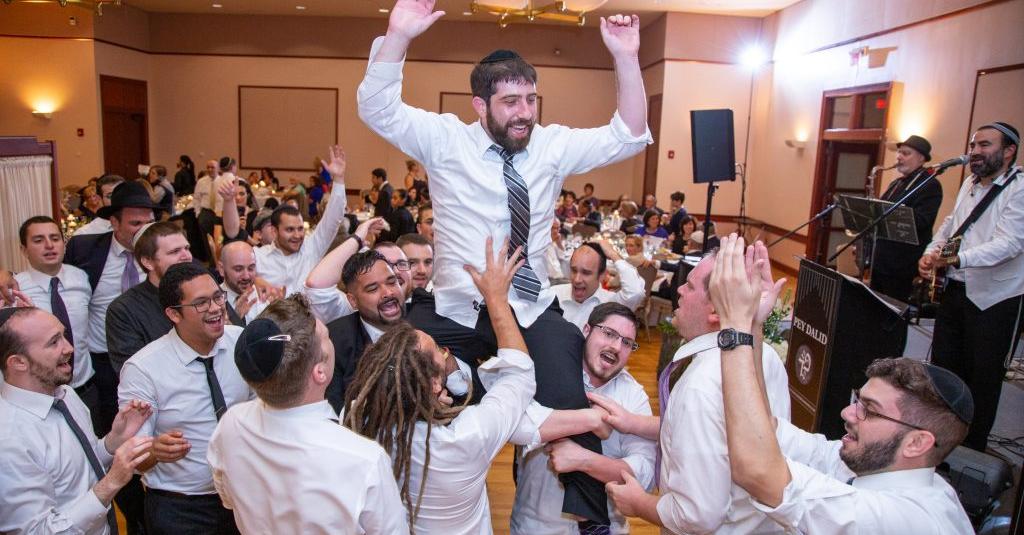Are you curious to know what is a simcha? You have come to the right place as I am going to tell you everything about a simcha in a very simple explanation. Without further discussion let’s begin to know what is a simcha?
Life is a tapestry of experiences, both joyous and challenging. In the midst of our journey, we encounter moments that fill our hearts with happiness and celebration. In Jewish culture, these occasions are often referred to as “Simcha.” Rooted in tradition and filled with significance, Simcha represents the spirit of communal joy and the celebration of life’s milestones. In this blog, we will delve into the essence of Simcha, exploring its meaning, rituals, and the importance it holds within Jewish culture.
What Is A Simcha?
Simcha, a Hebrew term, can be translated as “joy” or “happiness.” It encompasses the idea of experiencing profound delight, rejoicing, and celebrating life’s blessings. Simcha is not just an individual’s personal happiness; it extends to the collective joy of the community and the bonds that unite them.
Significant Life Milestones
Simcha is often associated with significant life events and milestones within Jewish culture. These occasions serve as opportunities for family, friends, and the community to come together and share in the joy of the moment. Some notable Simcha celebrations include:
- Bar/Bat Mitzvah: The Bar/Bat Mitzvah ceremony marks a young person’s coming of age, typically at the age of 12 for girls and 13 for boys. It is a joyous occasion that signifies their entrance into adulthood and their acceptance of responsibilities within the Jewish community.
- Wedding Celebrations: Weddings are considered one of the most joyous and festive Simcha events. They unite two individuals in love and commitment, and the celebration often extends over several days, filled with music, dancing, and heartfelt blessings.
- Brit Milah/Baby Naming: The birth of a child is cause for immense joy and celebration. In Jewish tradition, a Brit Milah (circumcision ceremony for boys) or a Baby Naming ceremony (for girls) is performed, bringing family and friends together to welcome the child and share in the happiness.
- Anniversaries and Birthdays: Significant wedding anniversaries and milestone birthdays are also occasions for Simcha celebrations. They provide an opportunity to express gratitude, reflect on the journey of life, and rejoice in the love and achievements shared throughout the years.
Rituals And Customs
Simcha celebrations are characterized by meaningful rituals and customs that infuse the events with spirituality and cultural significance. These practices vary depending on the specific occasion but often include:
- Prayer and Blessings: Religious ceremonies and prayers are an integral part of many Simcha celebrations. They serve to honor tradition, seek divine blessings, and express gratitude for the joyous moments being celebrated.
- Music and Dancing: Simcha celebrations are often accompanied by lively music and exuberant dancing. Traditional Jewish folk dances, such as the Hora, are commonly performed, creating an atmosphere of joy, unity, and celebration.
- Feasting and Sharing Meals: Food plays a central role in Simcha celebrations. Festive meals are shared, often featuring traditional Jewish delicacies and dishes that hold cultural significance. The act of coming together to share a meal fosters community and strengthens bonds.
- Acts of Tzedakah: Simcha celebrations often include acts of tzedakah, or charitable giving. It is believed that spreading joy and happiness should extend to those in need, and contributions are made to charitable causes or community initiatives.
The Importance Of Simcha
Simcha serves as a reminder of the importance of celebrating life’s blessings and finding joy even amidst challenges. It reinforces the bonds between individuals and communities, fostering a sense of togetherness and unity. Simcha celebrations create lasting memories and provide opportunities to pass down traditions, values, and cultural heritage to future generations.
Moreover, Simcha embodies the notion that joy is not a fleeting emotion but a state of being—a conscious choice to embrace positivity, gratitude, and celebration. It encourages individuals to cultivate a mindset of joy and find reasons to celebrate, not only during significant events but also in everyday life.
Conclusion
Simcha, the celebration of joy within Jewish culture, invites us to embrace the profound happiness that accompanies life’s milestones. It is a reminder to find joy in the present moment, to appreciate our blessings, and to come together as a community in celebration. Through rituals, customs, and acts of love and gratitude, Simcha reinforces the importance of cherishing life’s joys and sharing them with others. So, let us embrace the spirit of Simcha and find reasons to rejoice in the beauty of life.
You can know much more information on Caresguru
FAQ
What Does Only Simchas Mean?
There is an often-used Jewish expression “Only simchas!” It is a wish — a blessing, really — that we should bump into one another only on happy occasions. Folks use it as a parting phrase when they leave a wedding or a bris.
What Is The Simcha In The Torah?
Simchat Torah, Simchat also spelled Simhat, Simhath, Simchas, Simchath, or Simchat Hebrew Simḥat Torah, (“Rejoicing of the Torah”), Jewish religious observance held on the last day of Sukkot (“Festival of Booths”), when the yearly cycle of Torah reading is completed and the next cycle is begun.
What Is The Meaning Of Simcha Name?
Origin:Hebrew. Meaning:joy. Simcha as a boy’s name (also used as girl’s name Simcha), is of Hebrew origin, and the meaning of Simcha is “joy”.
What Does Samach Mean In Hebrew?
to rejoice, be glad
I Have Covered All The Following Queries And Topics In The Above Article
What Is A Simcha Hall
What Is A Simcha Religion
What Religion Is A Simcha
What Is A Brit Bat Vs Simcha Bat
What Is A Simcha\
What Is A Simcha?
What Is A Simcha
What does simcha mean religion
What does Simcha mean in Hebrew?
